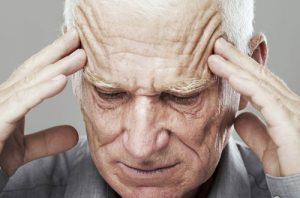Can Blood Thinners Cause Strokes?

Can Blood Thinners Cause Strokes? Let’s Find Out
Every year, 795,000 people suffer from a stroke in the United States. These stroke survivors are prescribed medications including blood thinners to avert another stroke in the future. Blood thinners are effective in reducing the risk of blood clots related to strokes. But, these have been found to have a fair share of risks. One needs to understand this before starting the medication.
It has been shown that blood thinners can reduce the risk of clot-related stroke, but can increase the risk of stroke related to blood vessel rupture or bleeding.It is suggested that the patients should make changes to their lifestyles to prevent unwanted complications due to blood thinners.
How do blood thinners help stroke patients?
Patients are prescribed anticoagulants or antiplatelets to prevent blood clots after a transient ischemic attack (TIA) or ischemic attack. These avert blood clotting by inhibiting the natural ability of blood to clot.
Platelets are microscopic cells moving through the bloodstream. Usually, a person bleeds a little after a cut, but the rate of blood clotting slows down due to the platelets glued to each other. This is called blood clotting. Antiplatelets (platelet aggregation inhibitors) reduce the formation of blood clots by interfering with the clotting process.
Some of the most commonly used antiplatelet medications include aspirin, clopidogrel, Dipyridamole or a headache medication with antiplatelet properties. Anticoagulant medications do not allow the blood to clot by inhibiting the blood proteins associated with coagulation.
Can Blood Thinners Worsen the Condition?
Stroke survivors at a higher risk of blood clotting are prescribed blood thinners. It is sad that the same blood thinners that can prevent blood clots can also increase the chances of bleeding, one of the reasons for hemorrhagic stroke. Moreover, several blood thinners are known for interacting with other over-the-counter (OTC) supplements, medications, and prescriptions. It minimises their effectiveness and paves the way for dangerous side effects.
Several blood thinners can lose their effectiveness as a result of supplements and diets. Non-vitamin K oral anticoagulants are blood thinners required to avert the stroke risk related to blood clotting. A study established that there is a risk of bleeding associated with NOAC’s when taken with fluconazole, rifampin, amiodarone and phenytoin. A few commonly prescribed blood thinners may act negatively with daily foods such as the kitchen spice, turmeric. It enhances the chances of bleeding when it is combined with some anticoagulant medications. Turmeric consists of a little amount of curcumin, an anticoagulant whereas supplements in the form of large capsules have more than 2000 mg of curcumin.
Stroke survivors are required to take one or more medications for minimizing the risk of stroke. It includes blood thinners. Anticoagulants and antiplatelets may enhance the risk of stroke. The survivors are required to make lifestyle or dietary changes to overcome the situation.
Stroke recovery is an uphill task. It requires a team of doctors, rehab professionals and caregivers in hastening stroke rehabilitation. The role of the last is not to be underestimated. It is also important to understand that nothing written in this article is a substitute for medical advice. Always make sure to consult with medical doctors when deciding on blood thinners.